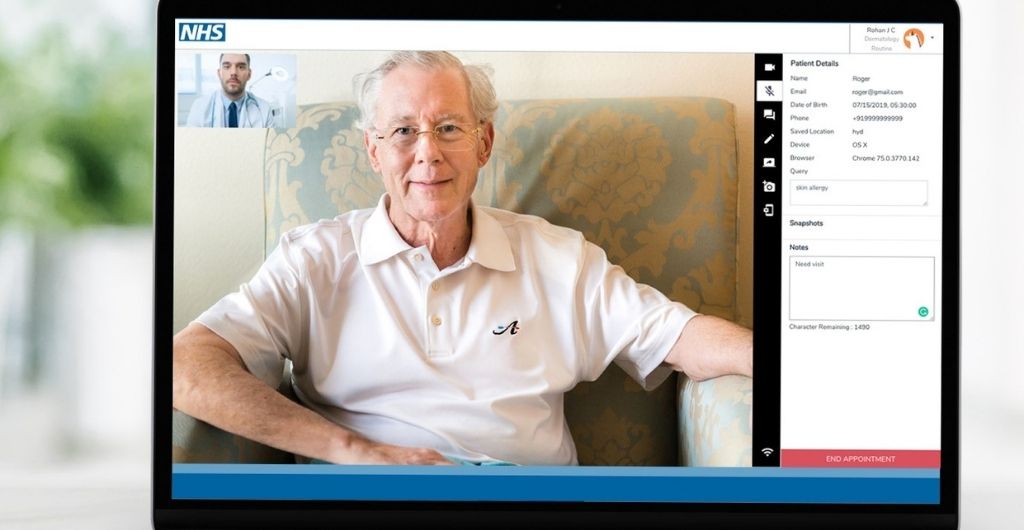
Kettering General Hospital NHS Foundation Trust has begun using a live translation service within its video consultation platform to improve accessibility for non-English-speaking patients, whilst also allowing the trust to make up to 90% cost-savings on traditional translation services.
The trust deployed the eClinic video consultation platform from the market-leading patient communications provider, Healthcare Communications, in August 2020 to reduce the number of patients visiting the hospital during the Coronavirus pandemic.
The multi-award-winning platform integrates with the trust’s patient administration system (PAS) and enables patients to attend appointments remotely — on any browser — using a smartphone, laptop or tablet.
The new service, which is available on a pay-as-you-go basis, will ensure that the trust can quickly and easily provide the right language translation to its patient population. Using advanced voice recognition technology, it can translate clinical appointments into more than 100 languages in real-time, via audio or text, depending on the patient’s preference.
As a result, the trust will no-longer need to rely as heavily on traditional services, such as telephone and face-to-face interpreters, which cost in excess of £57,000 per year. The Healthcare Communications solution provides savings of up to 90%, and if it were to be rolled out nationally it could save the NHS millions of pounds. It also minimises the likelihood of patients relying on family or friends to help with translations, which is strongly discouraged in the NHS due to the misinterpretation of clinical advice.
Dione Rogers, Chief Nursing Informatics Officer, Kettering General Hospital NHS Foundation Trust, said: “At the start of the pandemic, we realised that we needed to procure a video consultation platform so that we could continue to see our patients and reduce the risk of spreading the virus. We asked for demos from several suppliers, but none of them could offer the translation functionality promised by Healthcare Communications, which was a major selling point for us because inclusivity is a fundamental part of our organisational culture.
“It is so much more empowering for a patient to be at the centre of their own appointment, in control of their own health, and to be able to speak with a clinician directly. A really big issue at the trust is being tackled and I can’t wait for staff and patients to begin realising the benefits.”
Since March 2020, Healthcare Communications has seen a significant increase in the number of healthcare professionals and patients using eClinic video consultations, and by the end of 2020, the live translation functionality will be available to use across each of the 10 sites using the solution.
Kenny Bloxham, Managing Director, Healthcare Communications, said: “It has been a pleasure working with Kettering over the past few months to roll-out our video consultation platform, and we are delighted to be extending the use of our software to support a wider range of patients.
“Since the beginning of the pandemic, we have seen the rapid adoption of technology across the NHS, and it can mean that some people get left behind. But we are committed to preventing digital exclusion so that patients from all demographics have equal access to high-quality care. We’re looking forward to working with our 125 other client trusts as we continue to maximise eClinic’s capabilities, empower patients to take control of their own care and save the NHS money from the millions of pounds spent on traditional translation services each year.”
In addition to the eClinic, Healthcare Communications offers a suite of solutions purpose-built to improve patient experience and increase staff efficiency. This includes the company’s latest innovation, the Patient Portal, which delivers digital appointment letters via a single text and secure mini URL link. The Portal enables patients to add speech, reading and translation options for 99 languages to digital text, supporting patient accessibility, whilst reducing translation and printing costs.












